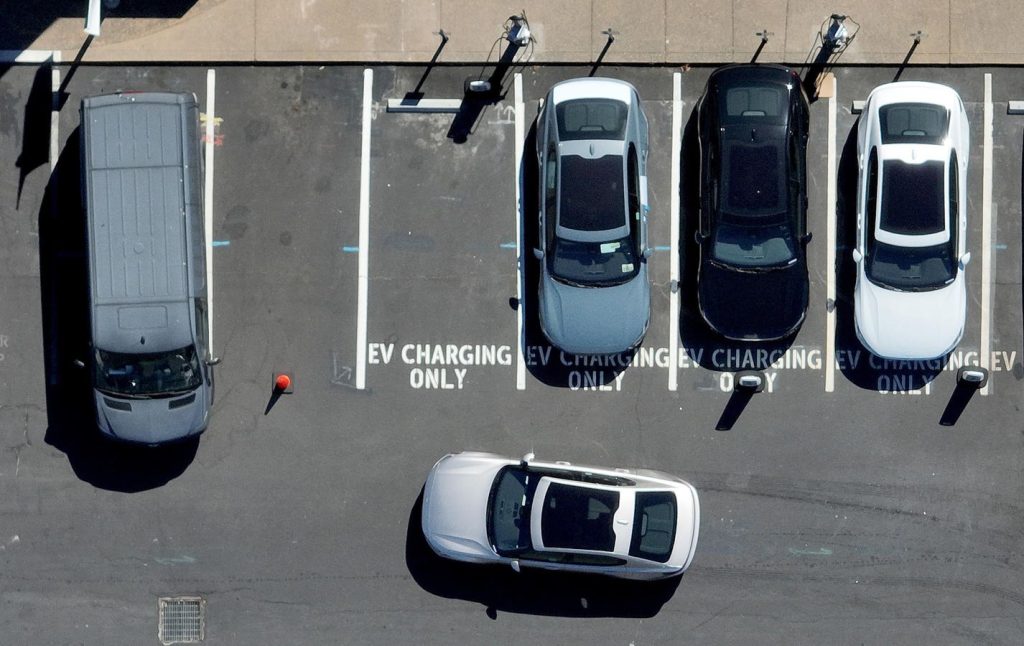The election of Donald Trump has raised concerns within the sustainability community regarding the future of electric vehicle (EV) adoption in the United States. Trump’s proposed policies, which include withdrawing from the Paris Agreement and rolling back regulations on oil and gas extraction, appear misaligned with climate-focused initiatives. His recent announcement of intentions to impose tariffs on imports from countries such as China, Canada, and Mexico could further complicate the landscape for sustainable technologies. These tariffs may hinder technological advancements, increase costs associated with importing vital components like solar panels, wind turbines, or electric vehicle parts, and lead to a reduction in global collaboration on climate initiatives. The potential for inefficiencies resulting from localized production that may not yet be environmentally optimized adds to the concern that tariffs could ultimately slow sustainable adoption in the United States.
However, a deeper look into the current EV landscape suggests that the implications of incoming policies may not be as detrimental as anticipated. The Biden administration has already established significant tariffs on Chinese EVs and batteries, effectively limiting their market share within the U.S. Consequently, there is a possibility that Trump’s approach may not diverge significantly from that of his predecessor in terms of restricting the sale of foreign-made EVs and battery components. Furthermore, Trump’s inclination towards allowing Chinese companies to manufacture batteries in the U.S. adds a layer of complexity, as it could lead to lower battery costs and improved manufacturing technology. Such developments might benefit the U.S. EV market, particularly for high-income consumers and commercial fleet buyers despite the impending changes to federal incentives.
The Trump administration’s robust stance against EV subsidies and the proposed elimination of the $7,500 tax credit for EV purchases introduces uncertainty regarding government encouragement for electric vehicle adoption. Trump’s campaign against mandates for EV adoption runs counter to past federal efforts to promote greener alternatives to internal combustion engines. Nevertheless, as the market adjusts, many stakeholders are questioning whether these policy shifts will genuinely stifle EV adoption or whether market fundamentals and consumer behavior will drive growth regardless of federal support. Notably, the competitive pricing of EVs highlights the ongoing race to produce cost-effective and efficient electric vehicles, irrespective of the surrounding political landscape.
Data from recent sales trends indicates a vibrant shift in consumer attitudes towards EVs. In 2023, the U.S. saw EV sales reach one million units, with an impressive market share of 8.9% in the third quarter of 2024, an increase from 7.8% in the previous year’s third quarter. This positive trajectory suggests growing public interest in EVs, supported by advancements in battery technology and charging infrastructure, as well as a heightened consumer focus on sustainability issues. Analyses from automotive industry research firms like Cox Automotive reinforce the optimism surrounding the EV market, predicting significant growth in the number of potential EV buyers over the next decade. These predictions highlight an anticipated rise in the percentage of vehicle purchasers who may consider EVs, from 45% today to 87% by 2032, demonstrating a resilient consumer willingness to shift toward more sustainable transportation options.
Several factors are driving this remarkable growth trajectory, including demographic shifts, technological improvements, and a genuine commitment to sustainable practices among consumers. Improved battery technologies continue to enhance performance and reduce costs, making EVs more attractive to the average consumer. Furthermore, the expansion of charging infrastructure reassures potential buyers about the practicality of owning an EV. As the aforementioned factors accumulate, they present a compelling case for the sustainability community to remain optimistic about the trajectory of EV adoption, even amidst evolving political dynamics.
Ultimately, while apprehensions within the sustainability community surrounding the impact of a Trump administration on EV adoption are understandable, the endurance and growth of the EV market depict a resilient narrative fueled by consumer demand and technological advancements. The global context also plays a critical role, as developments within regions like the European Union remain focused on sustainability, reinforcing the commitment to transition away from traditional vehicles. Therefore, stakeholders in the sustainability field should remain hopeful and proactive, leveraging the stated advantages and ongoing trends to facilitate a greener future, despite potential shifts in U.S. policy under the incoming administration.

